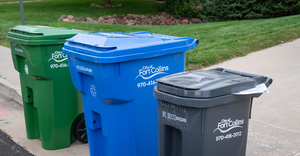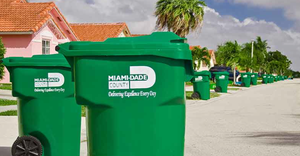Commentary: Black Friday Was a Dark Day for the Environment. That Has to Change.
Despite its dangers, single-use plastic remains the choice of packaging for retailers.

Black Friday 2023 was a blowout for retailers, with sales up 8% over last year's figures.
But Black Friday was also a “blowout” – in a completely negative context – for the environment. Apparel, electronics, food, and other big shopping season sellers typically come wrapped in single-use plastic – often several layers of it. Even as many companies claim their plastic packaging is recyclable, more than 90% of all the world’s plastic waste never actually gets recycled due to contamination and sorting challenges along with dwindling economic returns for the process. Rather, much of this plastic wrapping is destined to end up incinerated or in landfills, or worse, polluting rivers, oceans and other parts of the environment. This plastic never disappears, but degrades into micro particles, which pose a growing threat to the earth, animals and even human health.
Despite its dangers, single-use plastic remains the choice of packaging for retailers; it's cheap, versatile, readily available, and easily disposable. In fact, when it comes to plastic pollution, it seems that there's an almost inverse equation between a strong consumer economy and damage to the environment; as consumers buy more goods, plastic pollution gets worse. Clearly something needs to be done to put an end to this cycle, as the planet cannot sustain its current level of plastic pollution much longer.
Some see paper as an alternative – but, paper, too, is not a comprehensive answer. Paper packaging is a major contributor to deforestation, as well as a huge consumer of energy; the wood pulp and paper industry is the fourth largest industrial consumer of energy in the world, and one of the leading sources of water and air pollution in the United States and Canada. And while paper, unlike plastic, does decompose, it remains a major contributor to increasing levels of methane in the atmosphere. Meanwhile, paper cannot protect goods as well as plastic does, especially those that wrap food.
Compostable plastic – providing all the benefits of traditional plastic packaging with almost none of the environmental impact - is an emerging answer to this packaging dilemma. Containing bio-based and other compostable polymers, this innovative type of plastic decomposes into organic materials under the right conditions, resulting in valuable agricultural compost. When used on fields, this compost increases crop yields, reduces irrigation needs and absorbs carbon dioxide from the atmosphere, contributing further to steps that can mitigate climate change.
Considered by many experts to be the best form of sustainable packaging, compostable plastic demand is growing more than 5% a year. This material could, if widely adopted, halt the flood of traditional single-use plastic pollution that has engulfed the world, in addition to mitigating the effects of climate change through increasing the production and use of compost. This is also what consumers want. Polls make it clear that consumers want retailers and manufacturers to limit their use of single-use plastics, to the extent that they are willing to pay more for sustainable packaging, and for goods that come in sustainable packaging. Meanwhile, more consumers are composting other organic waste, including food and garden scraps, especially with growing government funding for composting programs. So it follows that more would also compost packaging if possible.
There is no question that the plastic pollution crisis is challenging to solve. But businesses that are serious about sustainability and keeping up with consumer demand should look beyond the empty promises of recycling and the limitations of paper packaging, toward compostable plastic. Embracing this innovative packaging will be good for business and, crucially, better for the planet.
About the Author
You May Also Like




